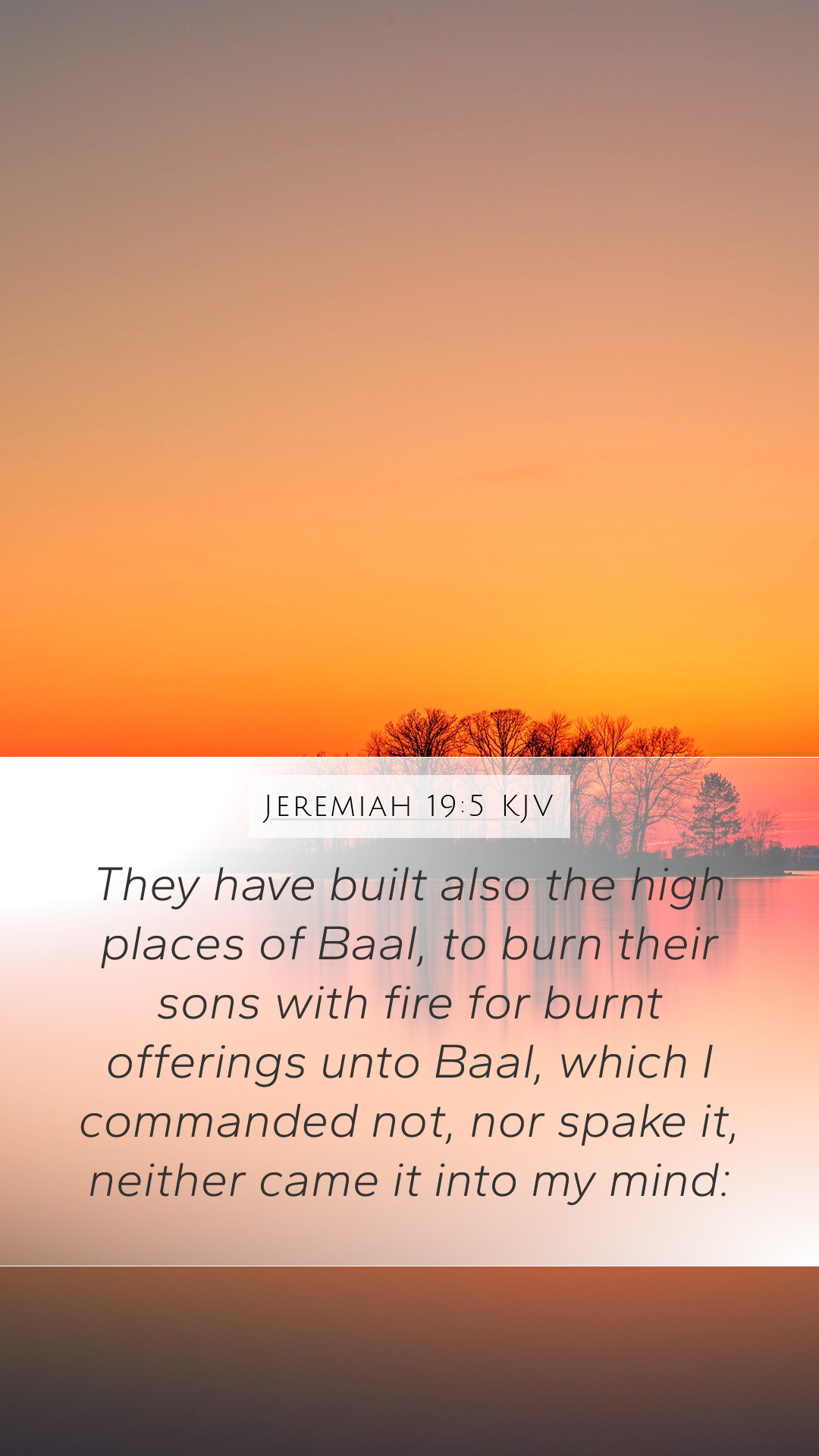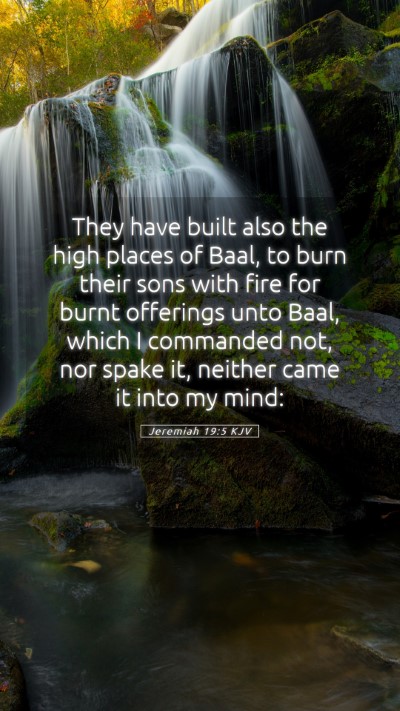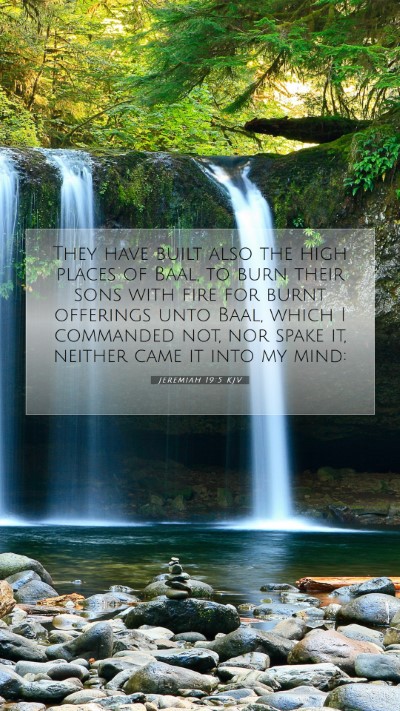Jeremiah 19:5 - Bible Verse Meaning and Commentary
Bible Verse: Jeremiah 19:5 states, "They have also built the high places of Baal, to burn their sons with fire for burnt offerings unto Baal, which I commanded not, nor spake it, neither came it into my mind."
Understanding Scripture: Context and Themes
This verse appears in a solemn context, reflecting God's grave disapproval of the practices prevailing in Judah. The references to Baal worship and child sacrifice highlight the moral decay and idolatry of the people. Specifically, it underscores a profound disconnect between the actions of the Israelites and the commands of Yahweh.
Historical Context of Bible Verses
- During the period of Jeremiah's prophecy, the Israelites had diverged significantly from divine commands.
- Baal worship was prevalent, influenced by surrounding nations, contributing to a loss of spiritual integrity.
- The act of child sacrifice was an abhorrent practice among certain cultures that deeply grieved God.
Bible Study Insights: Commentary from Public Domain Sources
Insights from Matthew Henry: Matthew Henry emphasizes the dreadful sinfulness of the Israelites in adopting pagan rituals, particularly focusing on the heinous act of sacrificing children. He illustrates the idea that such actions contradict the heart of God's commandments, revealing a deep moral decline.
Albert Barnes' Commentary: Barnes provides a detailed analysis of the verse, pointing out that the worship of Baal and the associated practices were not only prohibited but were also contrary to the very nature of God’s will. He elaborates on how these practices were influenced by surrounding nations and the pervasive challenge of syncretism among the Israelites.
Adam Clarke's Commentary: Clarke comments on the spiritual blindness of the people, suggesting that such sacrifices could never have been a part of God's divine instruction. He emphasizes that these acts reveal a tragic misunderstanding of God's nature and a deviation from proper worship.
Bible Verse Explanations: Key Themes and Symbolism
- Idolatry: The worship of Baal symbolizes a broader theme of idolatry that permeates the Old Testament, representing humanity's tendency to seek fulfillment outside of God.
- Consequences of Sin: The reference to child sacrifice serves as a stark reminder of the devastating consequences that arise from forsaking God's commandments.
- Divine Judgment: This passage foreshadows the impending judgment that was to come upon the people of Judah for their unfaithfulness.
Commentary on the Significance of Jeremiah 19:5
This verse serves as a poignant illustration of the clash between divine instruction and human depravity. By incorporating the insights from Matthew Henry, Albert Barnes, and Adam Clarke, we gain a multifaceted view that not only highlights the theological implications but also encourages readers to deeply reflect on their own spiritual practices.
Application of Bible Verses to Daily Life: In reflecting on this verse, one is encouraged to assess their own lives concerning idolatry—whether it manifests in materialism, relationships, or priorities that distract from devotion to God.
Cross References for Further Study
- Leviticus 18:21: Provides prohibitions against child sacrifice.
- 2 Kings 21:6: Describes the reign of Manasseh and the abominations committed in Jerusalem.
- Jeremiah 32:35: Similar references to the corrupt practices of worship.
- Deuteronomy 12:31: Explicitly instructs not to imitate the rituals of surrounding nations.
- Micaiah 6:7: Questions what God truly desires, highlighting the futility of empty religious practices.
Conclusion: Deepening Bible Verse Understanding
The study of Jeremiah 19:5 invites believers to grapple with poignant questions of faithfulness, idolatry, and the gravity of spiritual commitments. Through thorough bible study resources and group discussions, one can delve deeper into the meanings of Bible verses like this and apply the insights gleaned to cultivate a more profound relationship with God.


